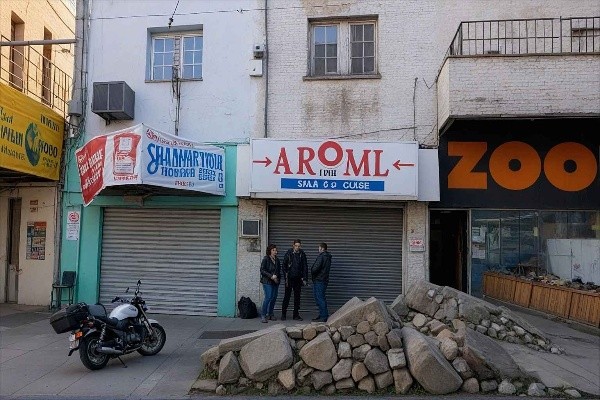Iran’s Plan to Strike Back Against the U.S.
Iran’s Military Preparations Following U.S. Attacks
Loading...

Palestinians start clearing wreckage in Jenin after the Israeli military’s 10-day assault leaves trail of destruction.
Aftermath of a Ten-Day Military Offensive
The Israeli military has officially withdrawn from the city of Jenin and its adjacent refugee camp following a ten-day military operation that resulted in significant casualties and widespread destruction. The Palestinian news agency Wafa reported the withdrawal on Friday, but residents remain apprehensive, fearing that Israeli forces may return after temporarily relocating to nearby military checkpoints.
During the offensive, at least 21 Palestinians, including children and the elderly, lost their lives, with over 130 others injured, according to the Palestinian Ministry of Health. The Israeli military characterized its actions as counterterrorism operations, claiming to have killed 14 individuals it labeled as "terrorists" and arrested more than 30 suspects. They also reported the destruction of approximately 30 explosives and an underground weapons stockpile located beneath a mosque.
A Devastating Impact on Civilians
The military operation, which began on August 28, marked one of the most extensive assaults on the occupied West Bank since the early 2000s. As residents of Jenin emerged from their homes to assess the damage, they were met with a scene of devastation. Journalist Leila Warah, reporting from Ramallah, noted that while some residents were returning, the Israeli military continued operations in other areas, including Nablus and Balata refugee camps, as well as raids in Bethlehem, Hebron, and Ramallah.
The destruction left behind in Jenin is stark. Roads are impassable, buildings lie in ruins, and the community is grappling with the aftermath of violence. Aziz Taleb, a local father, expressed relief that his children had left just before the raid, allowing them to avoid the chaos. Another resident, Imra Itisadeh, recounted the pressure they faced to evacuate their home, highlighting the emotional toll of such military actions.
Ongoing Military Presence and Concerns
Despite the withdrawal from Jenin, military checkpoints surrounding the city remain active, raising concerns about potential future incursions. Reports indicate that Israeli forces severely beat five Palestinians at the al-Jalama military checkpoint just before the withdrawal was confirmed. The Palestinian Ministry of Foreign Affairs condemned the Israeli actions, likening the destruction in Jenin to the devastation seen in Gaza over the past eleven months.
In addition to the violence in Jenin, Israeli forces have continued their operations in other parts of the West Bank. In Nablus, two university students were arrested, and a 30-year-old man was injured by shrapnel during a raid on the Balata refugee camp. The situation in Hebron has also escalated, with ongoing military actions leading to the closure of all entrances to the governorate.
A Broader Context of Violence
The recent military operations in Jenin and other areas of the West Bank are part of a broader pattern of violence that has intensified since the outbreak of conflict in Gaza. The Israeli military has described these raids as necessary measures to combat rising attacks against Israelis and to dismantle armed Palestinian groups. However, the Palestinian perspective views these actions as targeted assaults on civilians and their existence in their homeland.
As the dust settles in Jenin, the community faces the daunting task of rebuilding amidst ongoing fears of further military actions. The situation remains tense, with both sides entrenched in a cycle of violence that shows little sign of abating. The international community watches closely, hoping for a resolution that can bring lasting peace to the region.
Editor
Iran’s Military Preparations Following U.S. Attacks
Troops remain in five strategic locations, raising fears of renewed tensions and long-term occupation.
Opposition forces have taken control of the capital after a significant offensive. Here is how it unravelled.
